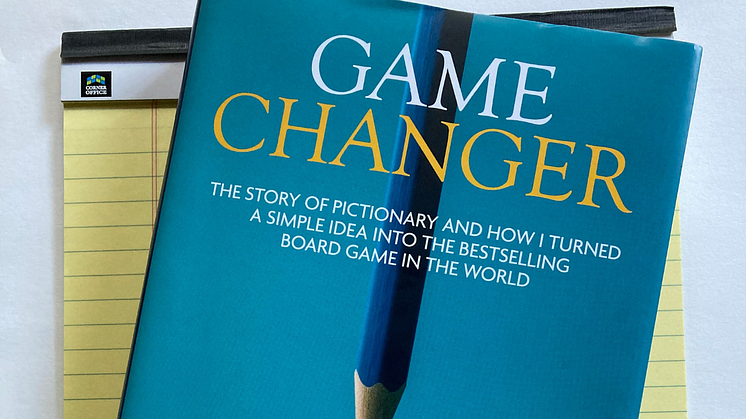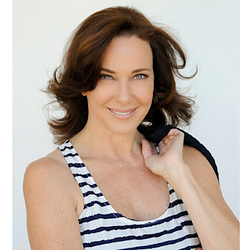
Blog post -
Book Review: Depicting Pictionary - Game Changer: The Story of Pictionary and How I Turned a Simple Idea into the Bestselling Board Game in the World by Rob Angel
Article by Mary L. Holden
Over a century ago, Syracuse Post-Standard newspaper editor Tess Flanders is credited with the observation that “a picture is worth a thousand words.” In 1985, Rob Angel wrote a list of 5,018 words to create a board game that involves the drawing of pictures. If Ms. Flanders were alive today, she’d relish writing a review for the book that defines everything about Pictionary.
Business biographies like this one are rare. Sure, you can read about the lives of Netflix, Nike, Nordstrom, and many Silicon Valley startups. But reading behind the scenes of how this board game was conceived, developed, and marketed is as much fun as playing it.
This book’s 289 pages are divided into three parts: “Drawing the Future,” “Winning Streak,” and “End Game.” The excellent writing is conversational in style—exactly what to expect from a young man who began his career in an historic Seattle restaurant. Angel was the waiter you’d hope might serve your plate of grilled salmon with apple salsa and then be very careful preparing your post-meal flaming cup of coffee.
Pictionary was developed with a team of two people that Angel draws with the words talented, humble, loyal, conscientious, smart, and visionary. Pictionary was funded based on those words by investors (Angel’s uncle and aunt) who saw divine returns based on words like amusement, satisfaction, competition, humor, and wonder.
Based on the game of charades (played through wordless communication, or body language), Pictionary’s sharpened pencils inspire communication through art. And, Pictionary brought all kinds of art to the business of board games.
Readers will enjoy the artful negotiations that played roles in the marketing, licensing, and promotional partnering of Pictionary with other products such as breakfast cereal, jeans, and use by television and movie actors who played the game in shows.
One surprise in Game Changer are a few stories of how playing Pictionary changed people’s lives for the better. Of course, the life most changed in many ways was the one lived by Angel. In one paragraph, 73.7 percent of the way through his story, he explains how he got to the word that sums up what he considers most important in life. It’s a good word—but it’s difficult to draw.
There is a heavenly being named Barakiel known as the angel of laughter and joy. Rob, a humanly being, may be the Angel of fun board games and brilliant business biographies.
Mary L. Holden is a freelance editor and writer. www.marylholdeneditor.com.
